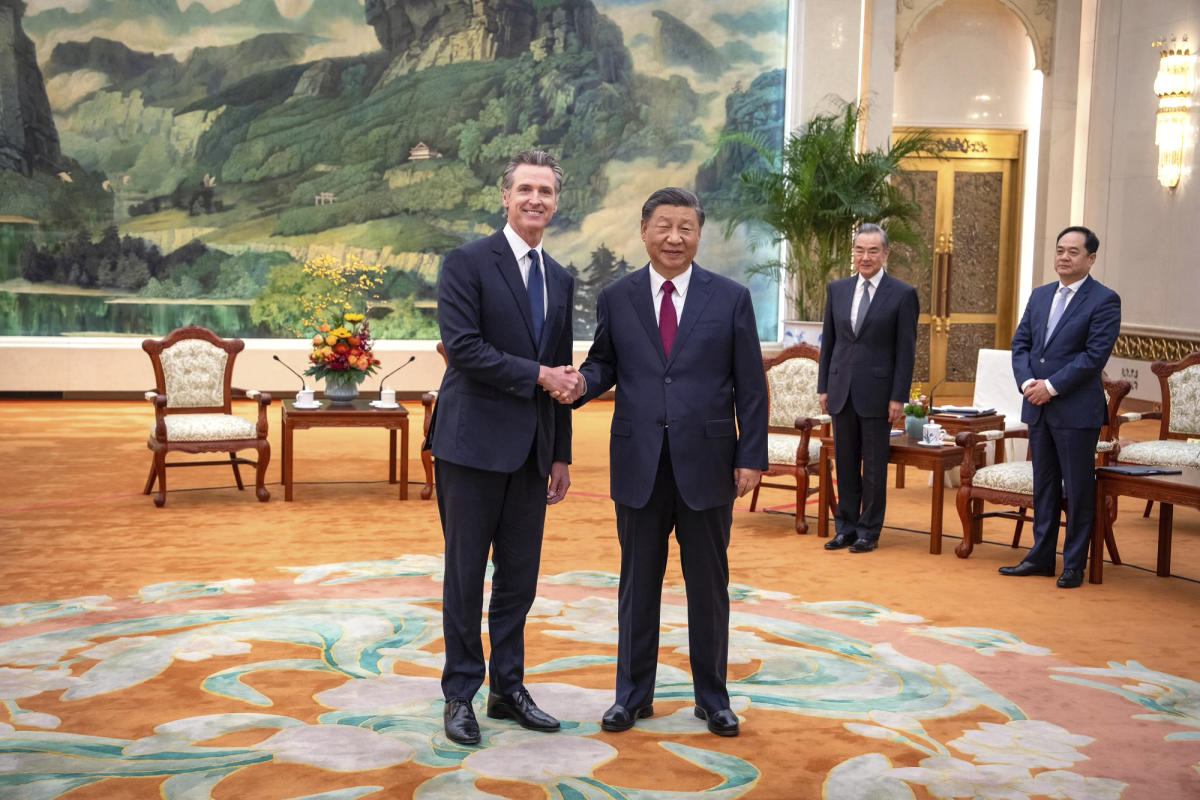BANGKOK (AP) — The recent trip to China by California Governor Gavin Newsom had a dual purpose of addressing climate change and fostering a positive relationship between the two countries. The meeting between Newsom and Chinese leader Xi Jinping was filled with warmth and cordiality, marking a significant shift in China-U.S. relations.
This trip was seen as a prelude to a potential meeting between U.S. President Joe Biden and Xi Jinping in San Francisco during the Asia-Pacific Economic Cooperation summit in November. It also highlighted the ongoing relationship between China and California, emphasizing that collaboration is still possible despite the tensions between the two countries.
According to Alex Wang, a professor of law at UCLA specializing in the environment, China’s reception of California sends a clear message that working with the state is desirable and politically encouraged. This demonstrates that even in times of strained relations, cooperation can prevail.
In recent years, U.S.-China relations have deteriorated due to various issues such as trade disputes, the COVID-19 pandemic, and the situation in Hong Kong. This deterioration has affected state-level engagement as well.
Research conducted by Kyle Jaros, a professor of global affairs at the University of Notre Dame, indicates a significant decline in states’ involvement with China over the past five years. However, China still values engagement with U.S. states as pragmatic business partners, separate from political dynamics.
California has a longstanding and deep relationship with China. This relationship was initiated by Republican Governor Arnold Schwarzenegger, who focused on climate cooperation a decade ago. Even as the U.S. shifted its stance towards China during the Trump administration, Democratic Governor Jerry Brown continued the relationship. At one point, the California government had a representative based in China, further solidifying the connection.
Besides diplomatic and cultural ties, California benefits from technical information-sharing with China on climate initiatives. This collaboration involves sharing insights into various aspects like financing electric buses and establishing charging infrastructure. China’s expertise in offshore wind technologies is another area where California can learn and expand its knowledge.
From a political standpoint, Newsom’s trip allowed him to enhance his diplomatic credentials and position himself for a potential future presidential run. His administration in California is committed to expanding solar power and clean energy, aiming to reduce emissions by 40% below 1990 levels by 2030. The state has also imposed a ban on most new gas-powered cars by 2035.
China’s decision to meet with Newsom could present economic opportunities for the state. Xi Jinping’s engagement with Newsom reflects China’s economic challenges and the potential for foreign investment from California.
While the trip has faced criticism on certain fronts, including limited press access and the plight of a detained pastor, it signifies Beijing’s desire for stable sub-national partnerships based on economic and scientific cooperation.
Overall, Newsom’s trip to China showcases the importance of fostering relationships between states and countries, finding common ground, and working together despite political differences.
___
AP writers Kathleen Ronayne in Sacramento, California, and Christopher Megerian in Washington, D.C., contributed to this report.


